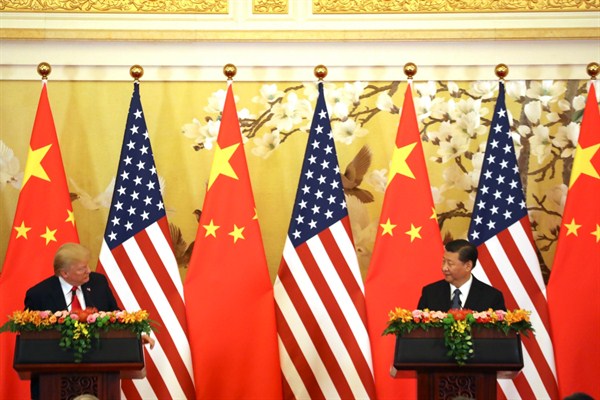U.S. foreign policy has often been likened to an oil tanker. It can shift course, but major changes in direction happen slowly, if ever. This is understandable, after all. America’s global partnerships have in most cases developed over generations, representing institutional investments and deep-rooted national interests.
One prominent exception to this rule, however, is now taking place before our very eyes: the U.S. foreign policy consensus on China, which has shifted rapidly over the course of the past few years and continues to move. This change reflects the degree to which the assumptions that long guided Washington’s approach to China were both overly pessimistic and overly optimistic in ways that now seem obvious, especially since President Xi Jinping came to power in Beijing. Overly pessimistic, because China’s restrictions on speech and dissent have neither stifled innovation nor constrained the aspirations of an expanded middle class. Overly optimistic, because instead of China’s integration with the global economy leading to liberalization at home and moderation abroad, China under Xi has grown more repressive and assertive.
The response in Washington over the past five years has resembled the five stages of grief, but with their order scrambled. Instead of progressing from denial to anger, then bargaining, depression and acceptance, China-watchers in the United States have gone from denial to bargaining, followed by depression, acceptance and most recently anger.

